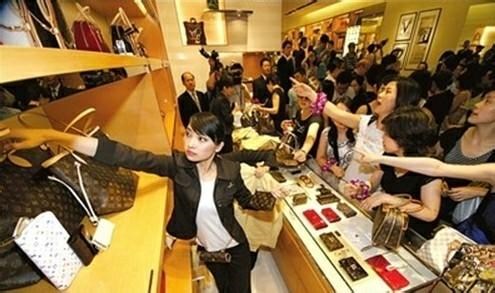Chinese luxury spending to double
Shanghai Daily, June 15, 2017 Adjust font size:
|
|
|
Chinese consumers' spending on luxury goods is set to double to 1 trillion yuan (US$147 billion) by 2025. [File Photo] |
Chinese consumers' spending on luxury goods is set to double to 1 trillion yuan (US$147 billion) by 2025, or 37 percent of the overall global luxury market, McKinsey said in a report yesterday(June 14).
Chinese consumers will account for most of this 2.7 trillion yuan growth in value of the global luxury goods market, with more sophisticated Chinese buyers being a major force behind the rise.
Around 7.6 million Chinese households spent an average of 71,000 yuan on luxury goods per year, according to McKinsey.
Most of the luxury shoppers are turning from affluent consumers to wealthy consumers with average annual household income above 300,000 yuan. They will contribute to 88 percent of Chinese luxury expenditure.
Wealthy consumers report a much more positive outlook about their future spending with one out of two wealthy consumers expects to spend more in 2017, as they seek expensive brands or more costly products from current brands.
Overseas luxury spending took up three quarters of overall expenditure for Chinese shoppers in 2016, up from two thirds in 2008, the report said.
"To capture this growth, luxury goods players will need to rethink their approach to winning the hearts of China's luxury spenders, and to craft a much more appealing experience for these consumers," said Lambert Bu, a partner at McKinsey.
